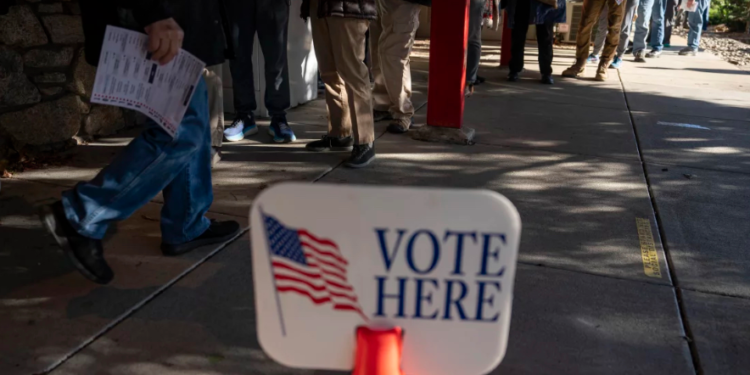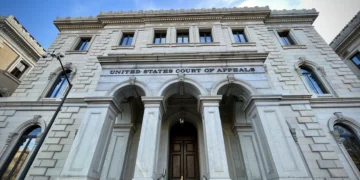Jan 24, 2025 Story by: Editor
A federal appeals court is poised to decide on the future of voting rights restoration for individuals with prior felony convictions in Tennessee.
The Sixth Circuit Court heard arguments challenging the state’s policies, which have been accused of unfairly disenfranchising voters with felony records.
The Tennessee NAACP filed a lawsuit in 2020 on behalf of five voters, alleging that state officials improperly denied voting rights to individuals with past felony convictions.
In recent years, Tennessee election officials have added a requirement that potential voters must first restore their right to own a firearm before they can regain their voting rights. Critics argue that this policy creates an insurmountable barrier for many individuals, as certain felony convictions result in a lifetime ban on gun ownership.
Despite resistance from the state, local judges have reinstated the voting rights of several individuals.
Defending the policy before the Sixth Circuit, the state argued that the firearm restoration requirement is essential for distinguishing between eligible and ineligible voters. The state also claimed that the NAACP lacks the legal standing to bring the case.
“Tennessee takes away the right to vote because of felony convictions from nearly half a million people,” said Blair Bowie of the Campaign Legal Center in an interview with WPLN News. “If people are able to make it through that rights restoration process, they even still face additional hurdles with registering to vote even when they are fully eligible.”
One voter represented by the NAACP and the Campaign Legal Center successfully restored her voting rights, only to face another roadblock when she moved to a different county. Her registration application was rejected because the state required documentation from her previous county proving her eligibility to vote.
Bowie criticized this practice, explaining, “They may be subjected to different rights restoration procedures than the ones that existed at the time that they got their voting rights restored. That may be more difficult, more complicated, and they may not be able to navigate the new process.”According to the Sentencing Project, nearly 475,000 Tennesseans are barred from voting due to past felony convictions, making Tennessee the state with the highest percentage of disenfranchised voters in the country. Approximately 7.7% of the state’s voting-eligible population is unable to cast a ballot, and Tennessee also leads the nation in the rate of disenfranchised Black voters. Source: WPLN

















